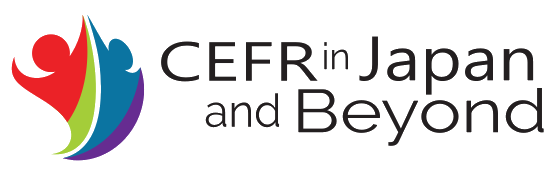Volume7
CEFR Journal - Research and Practice
Volume 7 is published by March 25th, 2025
Volume 7 (March 2025)
Editorial Team: Fergus O'Dwyer, Dmitri Leontjev, Elif Kantarcıoğlu, Morten Hunke, Maria Gabriela Schmidt
Table of Contents
Editorial by Fergus O'Dwyer
Articles
7-1, Title: Action-oriented, Plurilingual and Intercultural Education: A new association – API Forum
7-2, Title: Understanding the perspective of plurilingual assessment in teaching English at tertiary level in Ukraine
Authors: Viktoriia Osidak, Taras Shevchenko National University of Kyiv, Ukraine; Karin Vogt, Heidelberg University of Education, Germany; Maryana Natsiuk, Taras Shevchenko National University of Kyiv, Ukraine
Page: 19 - 50
DOI: https://doi.org/10.37546/JALTSIG.CEFR7-2
7-3, Title: Awareness-Raising in Training Student Teachers to Rate Written-Performances in line with the CEFR
Author: Jana Bérešová, Trnava University, Slovakia
Page: 51 - 68
DOI: https://doi.org/10.37546/JALTSIG.CEFR7-3
Authors: Ebtesam Abdulhaleem, King Salman Global Academy for Arabic Language, Riyadh, KSA; Claudia Harsch, Universität Bremen, Germany
Page: 69 - 99
DOI: https://doi.org/10.37546/JALTSIG.CEFR7-4
7-5, Title: Application of the CEFR to an Arabic Corpus: A Case Study
Authors: Aziza Zaher, Durham University, Great Britain
Page: 100 - 111
DOI: https://doi.org/10.37546/JALTSIG.CEFR7-5
Conference Report
Authors: The Handbook Steering Group: Neus Figueras, University of Barcelona; David Little, Trinity College Dublin; Barry O’Sullivan, British Council; Nick Saville, ALTE; Lynda Taylor, University of Bedfordshire
Page: 112 - 116
DOI: https://doi.org/10.37546/JALTSIG.CEFR7-6
Editorial - Volume 7
Fergus O’Dwyer
The underlying philosophy of open scholarship—freely sharing knowledge in a collaborative manner—is central to the CEFR, and found in the two contributions that bookend this seventh issue of the journal. The steering group of the freely available Aligning Language Education with the CEFR: a Handbook report on an event in Barcelona in 2024 that advanced a wide range of policy and pedagogical issues, with results feeding forward to objectives for future development. This includes an upcoming special guest-edited issue of the CEFR Journal on alignment issues, as well as involving international networks of language teacher educators and language teachers. The latter is in a similar vein to the first article by Brian North who discusses the formation of the Action-oriented, Plurilingual and Intercultural Education (API) Forum. This new organization aims to facilitate an inclusive and democratic language education that promotes an Action-oriented Approach and plurilingualism. One critical task is the networking of initiatives and projects concerning the key concepts of the CEFR/CV. Another stated aim of the API forum—supporting the development of teacher competences—is threaded through two of the other articles in this issue.
Osidak, Vogt and Natsiuk examine the Ukrainian tertiary-level context, highlighting the importance of the CEFR/CV descriptors in facilitating a shift towards plurilingual assessment. The article builds toward a collaborative approach to knowledge construction that empowers teachers allowing them to be agents for educational change. Jana Bérešová finds that active involvement in rating written work by student teachers in Slovakia leads to an awareness of the many possibilities of applying the CEFR in various contexts, ultimately positively impacting the development of classroom materials and the learning process in general.
The remaining two articles deal with the further development of the CEFR, with Aziza Zaher suggesting the need for a tailored framework that considers the specific features of the Arabic language. Abdulhaleem and Harsch verify the use of the CEFR as a criterion-referenced tool for gaining a broad understanding of proficiency levels, even if participants possess limited familiarity with the CEFR scales.
The above are examples of the broad range of issues which can be addressed in a focused manner by contributing to the journal: we welcome future submissions starting with an upcoming call for abstracts (details to follow on the journal website). Furthermore, we can expect that the emerging connectedness brought about by two initiatives outlined in the first paragraph above will be further developed in the API forum hybrid conference to be held in Rome on 19-20 June 2025. Onward and forward!
Dublin (Ireland), March 2025
(Last update: April 24th, 2025 MGS)

